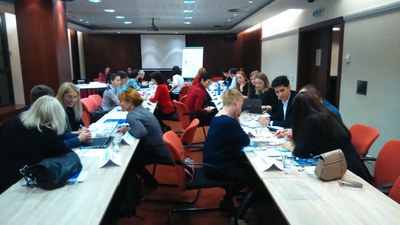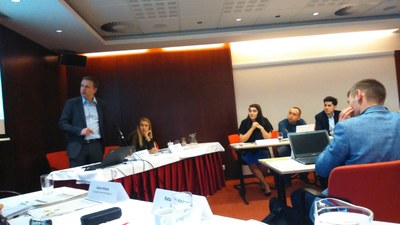28-30 November 2017 | The regional workshop successfully kicks off capacity building for the State of Environment reports
This workshop successfully kicked off capacity building and knowledge sharing to support the development of State of Environment reports in the Eastern Partnership countries. The event was organised by the EEA, the Ministry of Environment of Slovak republic and the Slovak Environment Agency.
The workshop was designed to provide and share the knowledge on integrated environmental assessments, based on the SOER 2015 experience in a regional context, on the one hand, and on the preparation of annual State of Environment reports in the national context, on the other.
The overarching objective of the ENI SEIS II East project is to support the further implementation of the SEIS principles and practices in the six Eastern Partnership countries. The specific objective is to strengthen the regular production of environmental indicators and assessment as a contribution towards knowledge-based policymaking and good governance in the field of the environment. The overall method of implementation is to use the Eionet as the model for SEIS implementation in the European Neighbourhood Policy (ENP) East region. The support and expertise of Eionet will play a key role in the implementation of the project's activities, in particular in capacity building and transfer of experience in the application of relevant practices, tool and systems used in the EU and EEA contexts. This will result in improved national capacity related to the provision of environmental data and information in line with national and EU environmental legislation, EU and Eionet best practices.
Over 3 days, experts shared experiences on the national State of Environment assessment reports. A market style approach facilitated an active dialogue in presentation of the national state of environment report.
Results of the EEA study on the effectiveness and efficiency of recent environmental assessments for policymaking, public awareness in the region and the six Eastern Partnership countries were presented to outline and identify activities for development of the environmental assessments and reporting on the environment.
An exercise to assess strengths, weaknesses, opportunities and threats for the State of Environment report (process and context) was run by participants with technical assistance from the Slovak experts.
Such self-assessment and knowledge-sharing meetings will help to build a road map and strategic outlines to develop the national assessment reporting on the environment in the Eastern Partnership countries through sharing Slovak knowledge on national environmental assessment reporting.
 |
 |

